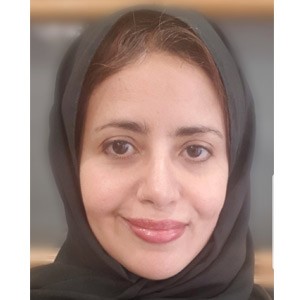Publisher: Maaal International Media Company
License: 465734
KSA’s Mission towards Joining the Top 5 Countries, in AI
اقرأ المزيد
Based on the confirmation of Crown Prince Mohammed bin Salman, the Saudi Data and Artificial Intelligence Authority (SDAIA) recently stated at the “Digital Technology Forum”, which was held in August 2021, that the Kingdom’s ambition is to reach the top 5 countries in the field of Artificial Intelligence (AI), by the year 2030, in line with the goals of the Saudi Vision, including the localization of artificial intelligence in the Kingdom.
Firstly, let’s define what Artificial Intelligence (AI) means. In the simplest terms, AI is the system(s) or device(s) that simulates human intelligence to perform various tasks, with the ability to improve itself through learning, automatically over time, based on the information it collects.
In other words, AI is the computer program(s) that simulates human mental abilities and their patterns of work, and some of the most important of these capabilities are: learning, concluding and reacting appropriately.
On addition, some references summarize the definition of AI in one sentence as “the science and engineering of building intelligent machines”.
In this article, I will highlight the Kingdom’s current progress status in the AI field, as well as analyze what needs to be achieved further, in order to achieve the Kingdom’s ambition to become one of the top 5 countries in the field of AI, by the year 2030.
(Current Status)
AI has more than one domain. The first domain is intelligent systems, where predictive analysis of data is carried out by AI algorithms, through processing large amounts of data, and enhancing the ability for future predictions, as well as facilitating the accurate decision-making within institutions.
The other domain is robotics and drones, that carry out various mechanical tasks.
There are many examples of these two domains, that are being used in the Kingdom, such as the following: In 2020, smart AI algorithms were used, inside the Kingdom, through the Saudi Ministry of Health, in order to predict the counts of possible infections with the Covid-19 pandemic, in the Kingdom, depending on some factors such as: population density, age and occupation of individuals, the closure policies adopted at the time, and the number of beds available in Hospitals, and others. Based on those data inputs, within the smart systems, it was possible to predict the possibilities of increase or decrease in future infections, and accordingly, planning and adequate preparations were made to contain the pandemic.
In addition, AI is one of the foundations of the NEOM project, by making it a unique futuristic city, with smart hospitals capable of analyzing medical diagnoses, and predicting future health conditions for patients.
NEOM also includes smart homes and schools that work on advanced technologies such as: “Internet of Things” and “automated translators”. And one of the most important factors for the success of AI in NEOM smart city is the existence of the infrastructure that serves smart installations, smart roads, smart electricity, and smart water. Moreover, one of the goals, of implementing AI in NEOM, is to provide high-quality communications, to complete transactions and to facilitate the arrival of information at a high speed.
Moreover, in the energy sector, AI is estimated to reduce national electricity use by 10%.
AI also contributes to protecting endangered species as new systems can use image analytics and machine learning to track their numbers and locations, as well as protect and sustainably manage the oceans.
In addition to all of that, AI has been used to evaluate and recognize banking and commercial transactions that might have a high probability of financial corruption, money laundering, terrorism or other illegal operations.
And this was also analyzed and predicted in a short time, with great accuracy and speed.
AI can also detect abusive activities in other systems, such as inventory and accounting, where it can recognize any signs of uncharacteristic or uncommon activity.
And it is worth mentioning that cybersecurity programs, supported by AI, are able to provide more protection than other programs. Instead of dealing with threats after losses occur, AI-powered cybersecurity software detects unusual activity early enough, so that it can stop or alert potential threats before any danger arises.
On the other hand, the AI scope which involves robots and smart drones have been used in many rescue operations, such as the cases of fires, earthquakes, volcanoes, and others, by reaching dangerous, high or narrow places, which a person cannot reach without risking his life.
This is considered as one of the most important applications of AI: to serve humanity. The Kingdom also succeeded, in 2018, in making a smart robot that can dismantle mines and explosives. The Kingdom has also succeeded in making Aramco’s “Inspection Robot”, which can sense dangerous and flammable gases, detect cracks and corrosion, and do other tasks to ensure human safety.
In addition, among the Kingdom’s efforts, in the field of AI, is the approval of the National Strategy for Data and Artificial Intelligence in 2020.
The Saudi Data and Artificial Intelligence Authority “SDAIA” is currently working on launching the strategy and activating its initiatives with various entities.
The SDAIA Academy has also been recently established to build national capacities, and it has data science camps, in which Python, machine learning, data analysis, deductive learning, natural language processing and other cognitive abilities; are taught. Many specialized references and training courses are also available, which enable digital awareness and build capabilities for individuals, entrepreneurs and institutions, in the field of AI.
And.. there are many other examples and initiatives, which the Kingdom has implemented, such as organizing the Global AI Summit in 2020, and through all these efforts and initiatives,
KSA succeeded in achieving first place in the Arab world, and 22nd globally in the Global Index of Artificial Intelligence in 2020.
(Future Status)
In order for the Kingdom to become one of the top 5 countries in AI by 2030, it must be able to achieve a number of additional achievements and overcome some obstacles/challenges that may prevent it from realizing the full potential of AI, and these are obstacles that the whole world faces at the international level, and seeks to find solutions for.
These challenges are mainly related to: data quality, distinguished scientific achievements in the field of AI, planning at the strategic level, and bias.
The first obstacle is the quality of data. In order for AI systems to perform their work properly, they must be trained through high-quality data to learn. In most organizations, data is rarely provided completely, sufficiently and with high quality.
However, without data maturity, organizations will find it very difficult to rely on these smart systems, in getting the desired results. Accordingly, the Kingdom is exerting a lot of efforts in order to ensure that there is sufficient and reliable data for use, in all industries.
The second obstacle is being able to achieve internationally distinguished scientific achievements in the AI field, by owning a large share of scientific AI research globally, as well as succeeding to obtain a large number of patents and implementing pioneering scientific innovations in the science of manufacturing robots and drones.
This also applies to locally building smart devices and systems, in the fields of: medicine, industry, energy, education, space, research and others.
It is also necessary to locally own many of the leading technical companies in the AI field that, and by employing a large number of skilled young local human talents, can innovate, build and provide services, software, tools, and smart technical systems, and also be able to manufacture distinctive smart technical products, equipment and machines, locally and internationally, in order to excel in the Global Competitiveness Index.
The third obstacle is planning at the strategic level. Although institutions are fully aware of the importance of innovation in the AI field, and aware of the positive benefits that it can provide, they sometimes may not succeed in dealing with it from a strategic point of view.
A good understanding of the objectives of all aspects of AI operations, is needed, starting from data collection, to financial investment in “creative” initiatives, as well as supervising how knowledge transfer is carried out to different work groups, especially young talents. Building AI-related universities and specialized training institutions is also a must.
The Kingdom has already launched the National Strategy for Data and Artificial Intelligence “NSDAI”, which is based on six dimensions, one of which is enabling the best research institutions specialized in data and AI to lead innovation and maximize the desired impact.
However, there are still many new goals that can be added, especially research and other initiatives in the scientific, educational, medical, industrial, commercial and military fields, in order to be able to reach a high ranking among the best 5 countries in AI by 2030.
The fourth obstacle is “Bias”. Bias is a human trait. In many cases, bias may be transferred to the data due to human input of data according to their understanding of the on-going events.
And because AI systems cannot perform their functions without obtaining data, the human bias that exists in some machine learning systems, may produce inaccurate results, due to the data and algorithms used. One example is self-driving cars, in some countries, which get more data from rich neighborhood, because that’s where those cars will go first.
The data and AI results were then considered biased. Therefore, correct results must be obtained through accurate data in the AI field, in order for the AI source to become reliable in its results.
The Kingdom’s ambition has no limits. A lot has been accomplished during the past few years.
More and more will continue to be accomplished, in the AI field, within the near future, at a speed which continues to fascinate the world, day after day.
Fadwa Saad AlBawardi
Technical & Strategic Planning Expert
لتحميل الملفات المرفق
صورة1-11-1.jpg






